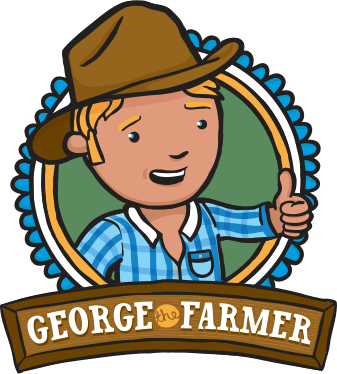This piece first appeared in the Herald Sun in June 2021.

When I was four, Dad pulled into our farm with a pig on the trailer. I named her Doris after my favourite TV show,
A Country Practice. A week later, I was surprised but not overly sad to learn that the delicious
bacon we were eating was my recently acquired mate.
For some children, that’s a hard bite to swallow; they’re naturally drawn to animals, especially the cute ones. But the younger you speak to kids about where food – and especially meat – comes from the better. They’re yet to fully comprehend the finality of death.
We’re living in a world where fast food marketing trumps against whole foods like fruit, veggies and grains. Not many kids would choose a carrot over a bright box full of fried finger food and maybe even a toy. The struggle is real. But if we start those conversations about where food comes from, how it’s grown, how to cook it, whether it’s good for us or not, and who is producing it — we’re arming them with the best knowledge to make healthy food choices.
The next time you give your child a carrot, tell them they grow from tiny seeds planted under the ground; that the longest carrot in the world measured over 6m; they’re amazing for our eyesight; that big harvesting machines pluck carrots out of the ground in paddocks and; if rocks are in the soil when carrots are planted, they’ll grow wonky! How cool!
Milk gives us healthy, strong bones but it doesn’t come out of a cow cold — it’s warm. And chocolate milk definitely doesn’t come from brown cows —that milk’s been flavoured. And did you know that cows have four stomach compartments? Crazy!
Or how about there’s over 1000 varieties of potatoes in the world and the potato was the first food plant to be grown in space! Check out our free paddock to plate potatoes video on youtube and the kids will also know how to spell potato by the end of it!
I learnt from personal experience when my son George was four how little they know. We grow potatoes on our farm but I’d never had a conversation about them with him. One Friday night whilst eating hot chips I asked what vegetable they came from. George’s answer, ‘Carrots!’ Hmmm not quite.. but it was a good conversation starter!
Don’t give yourself anxiety if they say no to anything now. Just keep having those conversations. We all know that building healthy food habits is a lifelong process.
Agriculture or farming has become this almost invisible ghost that efficiently provides our society with food, fibre (such as wool and timber) and fuel. As we say in our performances, ‘we need farmers at least three times a day — for breakfast, lunch, dinner and all of those yummy snacks in between. We need it to survive, but the gap between farm and fork has grown considerably. The conversations that you can have with your kids about food, also play a massive role in the future sustainability of our industry — ensuring we all have access to the clean, green food that we’ve become accustomed to through supporting our farmers. We’re all connected to agriculture.
If your knowledge of farming and food is limited, I encourage you to read our fun books and take a look at our free paddock to plate films and educational resources. At George the Farmer, our vision is a world where kids connect to the earth, food and farm. We’re a national brand hoping to make a global difference through education — all from a small regional town. Will you join us on our mission?
PS. If you’re wanting another tip to talk to your kids about meat or fish, try explaining that some animals are for pets, some are for admiring and protecting (like those in the zoo) and some are for eating. As my cattle farmer husband says, ‘A farm animal only has one bad day, and that’s it’s last.’
*Australian Council of Educational Research
^Medibank
 When I was four, Dad pulled into our farm with a pig on the trailer. I named her Doris after my favourite TV show, A Country Practice. A week later, I was surprised but not overly sad to learn that the delicious bacon we were eating was my recently acquired mate.
When I was four, Dad pulled into our farm with a pig on the trailer. I named her Doris after my favourite TV show, A Country Practice. A week later, I was surprised but not overly sad to learn that the delicious bacon we were eating was my recently acquired mate.